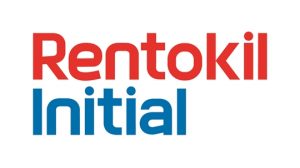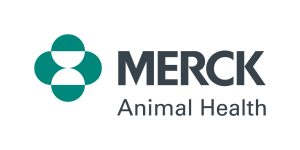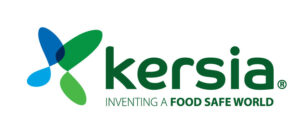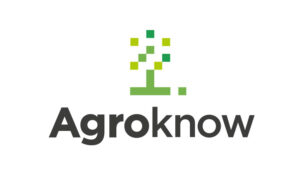GFSI Conference
Programme
Join moderator Isabelle Kumar, as she opens the GFSI 2026 conference alongside Sean Summers, Group CEO of Pick n Pay and Wai-Chan Chan, Managing Director of The Consumer Goods Forum. Together, they will set the stage for three days of collaboration, innovation and shared commitment to advancing food safety worldwide.
Location: Plenary Hall
Join Elizabeth Andoh-Kesson of GFSI, Amy Parks of Dole plc and Kazuaki Miyagishima of AEON, as they celebrate 25 years of the GFSI Conference. This session reflects on GFSI’s global impact, achievements and lessons learned, while exploring how inclusivity and collaboration will shape the food safety ecosystem going forward. From evolving CPO engagement to strengthening trust and transparency, this milestone conversation invites all participants to join in defining the future of food safety together.
Location: Plenary Hall
Join Dr. Evelyn C. Soo of the Canadian Food Inspection Agency and Dr. Joyce Irene Boye of Health Canada as they explore how they are collaboratively addressing today’s food safety challenges while building resilience for tomorrow. Delegates will discover how CFIA and Health Canada are leveraging current tools and emerging technologies – including innovative approaches like reliance, artificial intelligence (AI), advances in data modelling and digital traceability, etc. – to strengthen Canada’s food safety system, while highlighting the importance of cross-agency collaboration in an evolving food safety landscape. Whether you’re navigating today’s pressures or preparing for future challenges, this session offers valuable insights into how leading regulatory organizations are working together to protect consumers and the integrity of our food supply.
Location: Plenary Hall
Exhibition Hall
Turn Regulatory Blind Spots into Competitive Advantage
Missing even a single local regulatory update can lead to delays, recalls or stalled market entry – a real and familiar risk for teams working across multiple regions and supplier networks. But what if you could spot these changes early enough to act with confidence instead of reacting under pressure?
That’s exactly what Nidhi Chaturvedi will address in her Tech Talk featuring SGS Digicomply.
What she’ll cover:
• The Challenge: Managing the overwhelming volume of global food safety data and changing legislation without drowning in spreadsheets
• The Solution: AI-powered tools that deliver insights and flag relevant changes before they become problems
Key Takeaways:
• How to move from manual, reactive compliance tracking to AI-driven, predictive regulatory intelligence
• How to prioritize the truly relevant regulatory signals across countries, categories and suppliers
• How leading food companies use regulatory foresight as a strategic advantage, not just a compliance task
Location: Presentation Theatre in the Exhibition Hall

More to be announced soon!
Location: Presentation Theatre in the Exhibition Hall
Mary MacIsaac, EVP and CMO of Loblaw Companies Limited, joins moderator Isabelle Kumar to discuss how food safety underpins business decision-making and consumer trust. This session explores inclusivity in the food safety ecosystem, the challenges shaping modern retail and the strategic innovations guiding Loblaw’s approach. Attendees will gain insights into how certification, supplier collaboration and evolving retail technologies are driving food safety excellence across the supply chain.
Location: Plenary Hall
This panel will explore how companies can move beyond compliance to build real credibility in today’s increasingly complex food supply chains.
Experts from a leading processor, a certification label, and an animal health company will discuss how traceability, scientific verification and connected solutions strengthen transparency, protect consumers, and drive business value.
The session will also highlight how DNA integrity safeguards premium concepts and ensures a level playing field for farmers who go the extra mile — turning additional efforts into stronger consumer trust and brand reputation
Location: Plenary Hall
Exhibition Hall
Data-Driven Food Safety: Everyone has a Vital Role
In an interactive Q&A format, discover how data and AI are reshaping food safety practices across the value chain, providing insights that lead to real, practical improvements. This session will highlight how leadership across the value chain can use data-driven insights and tools – including predictive analytics and AI – to drive meaningful improvements and achieve a safer, more efficient system.
Key Takeaways:
Explore how a digital ecosystem contributes to delivering measurable outcomes and decreases food safety risk through visibility, insights, and guidance.
• AI Models: Learn the distinct roles of generative AI and agentic AI in food safety and how you can apply either or both into your food safety programs.
• Enhancing Human Performance: Explore ideas for using AI to standardize routine tasks and how it can help train your team members.
• Roadmap to Adoption: Leaders will discuss how their teams have responded to AI integration and how to navigate change culture around AI tools.
• Real-World Applications: Gain practical examples of AI adoption in food safety, highlighting current successes and what’s next.
Location: Breakout 1
From Audit Volume to Audit Value – When More Audits Stop Making Us Safer
Food safety, quality and sustainability audits have never been more extensive. Yet many organisations face a growing and often unspoken reality: despite more audits, more dashboards and more standards, it is becoming harder to know what truly reduces risk.
This is not because audits have failed — but because the audit system has grown faster than organisations’ capacity to operate it.
Expectations continue to rise, while time, specialist skills, digital fluency and cross-functional coordination struggle to keep pace.
This session explores what happens when audit demand outgrows organisational capacity, and why this can lead to:
• audit overload and competing priorities
• digital systems that exist but their potential is not fully exploited
• sustainability and food safety being run in parallel not as one system
• a growing gap between compliance and real confidence
Rather than questioning the value of audits, the discussion focuses on how audit systems can be designed so people can realistically run them, trust them and act on them.
The session will combine a framing presentation with a panel discussion bringing together different perspectives on how leading organisations are working to close the gap between audit pressure and operational reality.
Participants will leave with:
• a way to distinguish audit activity from audit value
• insight into why digitalisation does not automatically improve risk management
• practical ideas for dealing with capacity, skills and ownership gaps
• examples of how organisations are breaking silos between food safety, sustainability and operations
As regulatory, customer and sustainability expectations continue to rise, organisations are being asked to rely on audits more than ever before. Yet many leaders experience a growing disconnect between how much is being audited and how confident they feel about their risks.
This session offers a forum to examine that gap — and to explore how organisations can strengthen both compliance and confidence in a more integrated way.
How do we stop auditing more — and start understanding better?
Location: Breakout 2
Airlines are transforming in-flight catering through AI, data analytics and digital innovation to deliver safer, more personalized and efficient food experiences. This session brings together leading airline operators and catering partners to explore how technology is reshaping every stage – from menu design and supply chain monitoring to predictive demand planning and food safety management. Participants will hear practical insights on integrating solutions that enhance operational agility, traceability and customer satisfaction, while maintaining the highest food safety standards in a fast-moving global industry.
Location: Breakout 1
This session explores how retailers build consumer trust through food safety excellence at every touchpoint – from what customers see in-store to the critical last-mile delivery experience. As online ordering and third-party delivery services expand, managing temperature control and hygiene standards during delivery has become as vital as maintaining visible food safety practices on the store floor. Experts will discuss practical strategies for addressing food safety challenges in retail environments and examine successful food safety programs that strengthen brand loyalty and consumer trust. Attendees will gain actionable insights into strengthening food safety operations across all channels, building consumer confidence and fostering lasting trust in an evolving retail landscape.
Location: Breakout 2
Join this interactive workshop series designed to foster open discussion and collaboration on the evolving landscape of food safety auditing. Guided by expert facilitators, participants will explore key questions and challenges shaping audit practices of tomorrow. Through inclusive small-group discussions and hands-on engagement, each session will generate practical insights contributing to a post-conference paper that will help define GFSI’s future auditing approach. Attendance is limited and available on a first-come, first-served basis – please stay tuned for registration details!
Location: Plenary Hall
Visibility Feeds Safety: GS1 Standards and a Smarter, Safer Food Chain
Ensuring food safety in a complex, globalized supply chain depends on one foundational capability: true, end‑to‑end visibility. This 15‑minute tech talk explores how that visibility is only possible when every product, location, and trading partner speaks the same global digital language. The GS1 System of Standards provides that common language through its system of unique identification, modern data‑capture technologies, and interoperable data‑sharing frameworks that allow organizations to track, trace, and trust the movement of food across borders and through every node of the supply chain.
Attendees will gain a clear understanding of how GS1 identifiers—for products, locations, and entities—enable precise traceability; how next‑generation capture tools such as 2D barcodes and RFID unlock richer, real‑time data; and how standards like EPCIS support the exchange of Critical Tracking Events and Key Data Elements essential for rapid response and risk reduction. Participants will leave with a concise, practical understanding of how GS1 standards strengthen food safety programs, streamline regulatory alignment, and build a more transparent and resilient global food system.
Key takeaways:
· Supply chain visibility is essential to food safety
Modern food safety programs depend on real‑time, end‑to‑end visibility to identify risks, respond quickly, and protect consumers. GS1 standards create a common language that makes visibility possible.
· The foundation is identification
A standardized system of globally unique identifiers across products, locations, and entities ensures every part of the supply chain is referencing the same precise data.
· Next‑generation data carriers unlock richer, more actionable information
Technologies such as 2D barcodes and RFID enable faster, more accurate data collection across the supply chain.
· EPCIS enables sharing of Critical Tracking Events and Key Data Elements
Standardized data exchange supports interoperable traceability and strengthens global food safety collaboration.
Location: Presentation Theatre in the Exhibition Hall
More to be announced soon!
Location: Presentation Theatre in the Exhibition Hall
Maintaining the highest standards of food safety and quality is both a shared industry responsibility and a cornerstone of consumer trust. Since its establishment in 2000, the Global Food Safety Initiative (GFSI) has aimed to harmonize expectations and reduce audit duplication. Ultimately, the goal of a food safety audit is to protect the consumer by verifying that a food operation consistently produces safe foods and not merely to achieve a passing score or meet a checklist. However, despite significant increases in audits carried out under the GFSI umbrella, customer addendums, and new revisions to the Certification Program Owner standards, the number of recalls continues to rise. This raises 2 questions, is it right to expect audits to reduce recall numbers and are audits by GFSI programs effectively measuring the elements that genuinely prevent food safety events, or do they miss what truly matters?
Drawing on extensive hands-on experience across diverse manufacturing environments, this presentation examines how the current GFSI audit landscape, while well intentioned, often emphasizes procedural completeness over operational performance. The layering of scheme requirements, auditor interpretations, and customer-specific checklists can overshadow the core drivers of food safety: environmental control, hygienic design, process capability, training effectiveness, and rapid hazard response. As a result, organizations may excel in audit preparedness while still facing vulnerabilities that contribute to outbreaks, recalls, and costly rework.
With the CDC reporting roughly 48 million cases of foodborne illness annually in the United States and economic losses exceeding $15 billion, the urgency for a more impactful approach is clear. A redesigned GFSI audit model, one that prioritizes real risk reduction, measures leading indicators, and focuses on dynamic hazard control, is essential for the industry to progress.
This presentation proposes practical strategies for transforming GFSI audits into stronger tools for prevention, focusing into how to streamline non–value-added requirements, emphasize performance-based verification, and reorient audits toward outcomes that meaningfully improve public health. By moving beyond compliance toward relevance and effectiveness, the industry can strengthen food safety systems and deliver true, measurable improvements in preventing outbreaks and recalls.
Location: Plenary Hall










